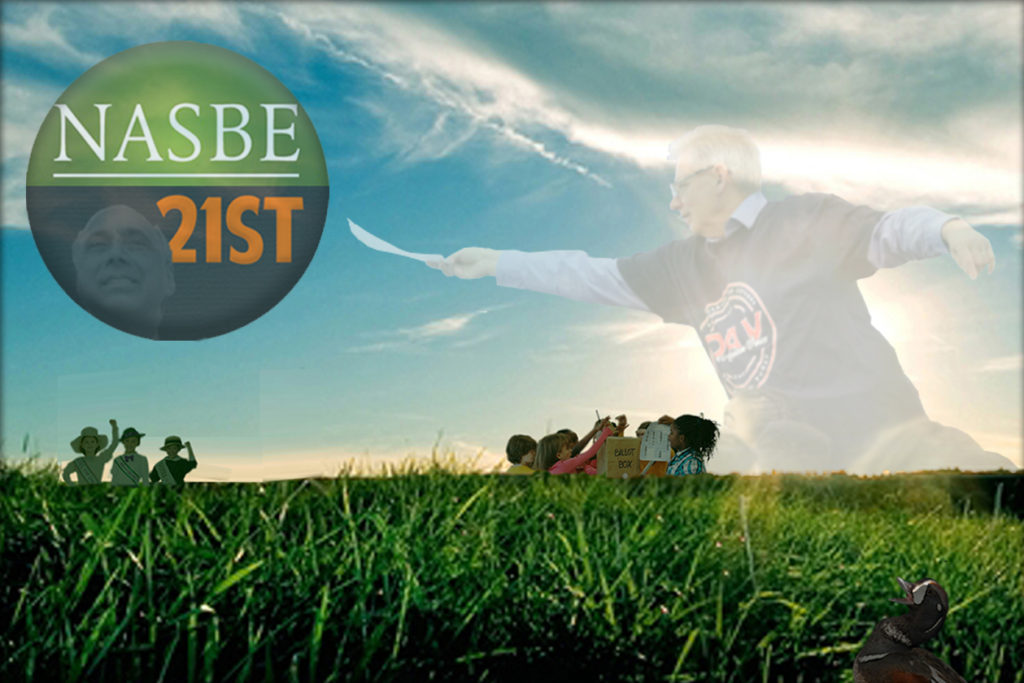Civic Engagement Champions
The Institute is collaborating with the National Association of State Boards of Education (NASBE) to launch a new initiative, Civic Engagement Champions, that’s aimed at where we believe inculcating 21st century citizenship is both most critical and possible: the next generation. The program will highlight the work of outstanding middle school teachers, one from each NASBE area, who are fostering civic engagement in their classrooms, beginning with four states–Illinois, Maryland, Massachusetts, and Washington–with the intention to expand the program in future years and the hope to eventually operate in all fifty. All teachers of children in grades 5-8 in these states are eligible, irrespective of subject taught. National education partners on the project include:
- American Association of Colleges for Teacher Education
- AASA, the School Superintendents Association
- Association for Middle Level Education
- Council of Chief State School Officers
- National Association of Secondary School Principals
- National Board for Professional Teaching Standards
- National Council for the Social Studies
Working with representatives from each participating state board of education and NASBE’s education partners, NASBE will develop a set of shared criteria to be used in the selection of the state Civic Engagement Champions. For more program information and an application–due June 17, 2019 for the 2019 awards–click here. In early September, NASBE will convene a selection committee: one representative from each participating state board of education and one representative from each education partner. The committee will select state winners and one national winner, announcing them at its Annual Conference. Winners will each receive a $5,000 stipend and be invited to participate in NASBE’s Legislative Conference. Our Institute has been and will be continuing to provide support in a variety of forms, including financial.
We’ve chosen to focus on middle school educators in particular because educational research shows that early exposure to a subject is most likely to foster a positive orientation to it. Currently most civics education programs, to the extent they exist, begin only in high school. This is not early enough in our view, and therefore we see the biggest civic engagement gap occurring in the middle school years, the point in development where the vast majority of students have the cognitive ability to grasp complex concepts, develop problem-solving and critical thinking skills, and become peer and civic leaders. We’re focusing on teachers because they are the difference makers in their classrooms and beyond. Our hope is that by highlighting and rewarding educators in the middle years who best model civic engagement, we can inspire others to follow their example.



